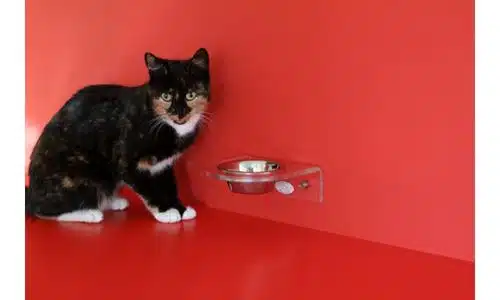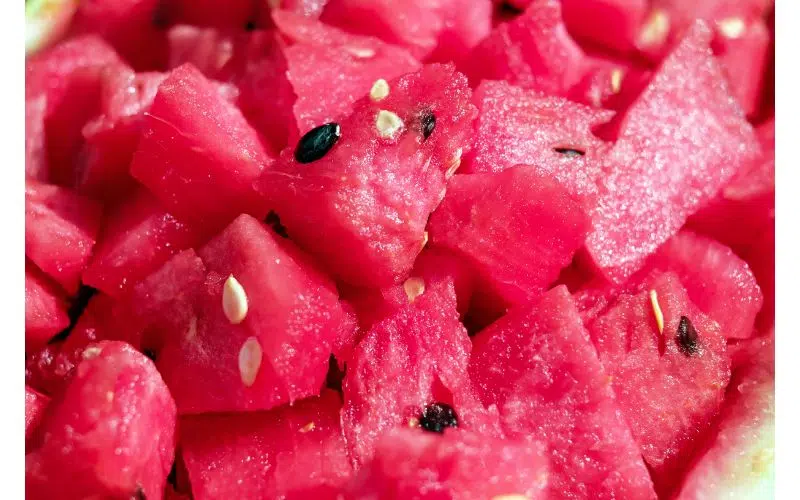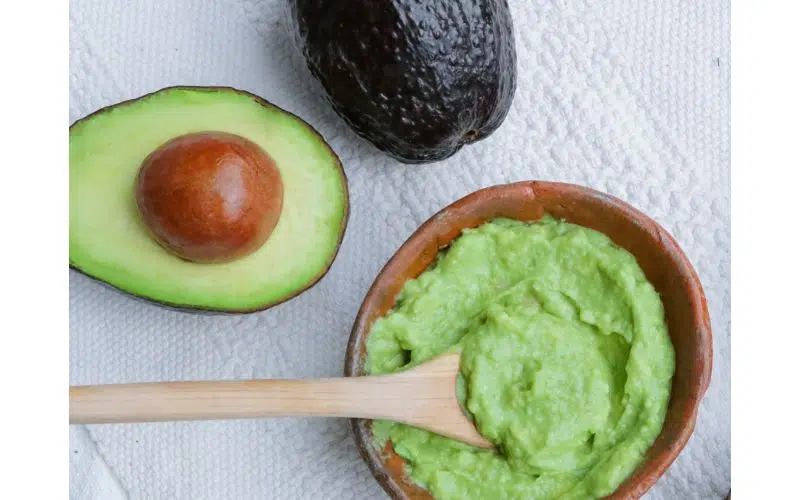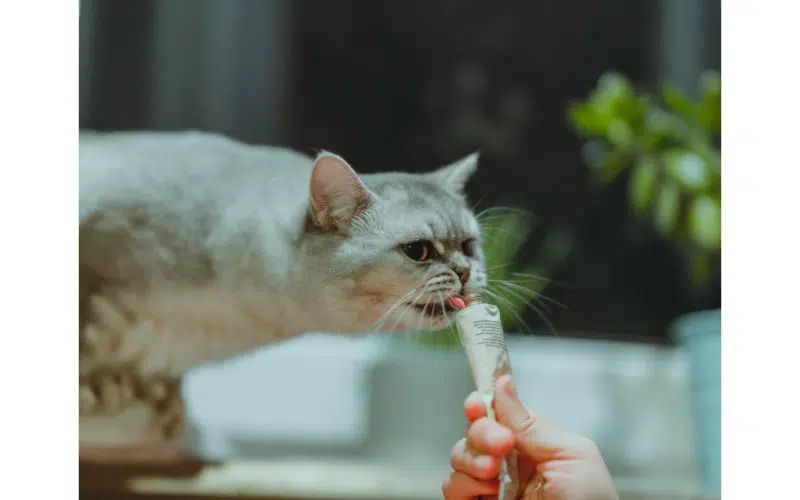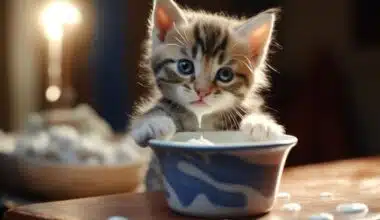There are no two ways about it: Your cat is a carnivore. Though dogs can survive on plant foods in a pinch, your cat’s body is simply not designed to process plant matter. He has a short digestive tract and lacks the enzyme that herbivores use to break down fiber. All of this means that protein is an essential component of your cat’s diet. The best animal protein comes from meat, poultry, or fish, but these aren’t the only types you’ll find on a cat food label. This article will discuss non-prescription hydrolyzed protein cat food, specifically for cats with food allergies, as well as its side effects. We’ll go over the benefits and drawbacks of Royal Canin hydrolyzed protein cat food and help you decide which wet hydrolyzed protein cat food is best for your cat.
What Is Hydrolyzed Protein Cat Food?
An hydrolyzed Protein is proteins that have been broken down to a very small size and are found in cat food. Traditional cat food contains intact, normal-sized proteins. The majority of food allergies are caused by an abnormal reaction to intact proteins in food. A hydrolyzed protein diet’s goal is to disrupt or break down the proteins in the diet so that the immune system does not react to them.
Hydrolyzed proteins have been used for decades in baby formula for children who are allergic to cow’s milk, but their use in cat food is newer. A veterinarian will prescribe a hydrolyzed protein diet to help with the diagnosis and management of a cat’s food allergies. These diets are also frequently prescribed for cats suffering from inflammatory bowel disease (IBD).
Why Does a Cat Require Hydrolyzed Protein?
If a cat has food allergies or intolerances, it will require hydrolyzed protein cat food. When the immune system recognizes certain particles as foreign, allergic reactions occur. Certain proteins are recognized as allergens by the immune system in the case of food allergies.
As previously stated, the proteins in hydrolyzed protein cat food are too small to be detected by the cat’s immune system. As a result, hydrolyzed protein foods are ideal for cats who have adverse food reactions.
Hydrolyzed Protein Cat Food
Based on what you’ve read thus far, it’s not surprising that we don’t strongly recommend hydrolyzed protein cat food. Your veterinarian is the only one who can truly say whether this diet is best for your cat, but if he suggests it, we encourage you to look into other options. If you want to feed your cat hydrolyzed protein, we recommend the following two recipes:
#1. Blue Buffalo Natural Veterinary Diet HF Hydrolyzed For Food Intolerance Dry Food
You’re unlikely to find a non-prescription hydrolyzed protein cat food, but if you’re willing to pay the price for a prescription, we recommend Blue Buffalo Natural Veterinary Diet HF Hydrolyzed for Food Intolerance. This formula, designed specifically for cats with food allergies and intolerances, contains hydrolyzed salmon, a highly digestible form of animal protein.
This recipe contains omega-3 fatty acids for healthy skin and coat, as well as key antioxidants to boost your cat’s immunity. This recipe is also grain-free, which reduces the risk of allergies and intolerances, and it has a natural flavor that your cat will enjoy.
#2. Blue Buffalo Natural Veterinary Diet HF Hydrolyzed For Food Intolerance Canned Food
For cats with food allergies or intolerances, it is critical to find a recipe that is gentle on the stomach as well as one that does not contain the food to which your cat is allergic. A wet food, such as this Blue Buffalo Natural Veterinary Diet HF Hydrolyzed Canned Food recipe, is a good choice for very sensitive cats. It does require a prescription, but it is made with hydrolyzed salmon and is formulated specifically for food intolerance.
Hydrolyzed salmon is a highly digestible protein that is supplemented with fish oil and flaxseed to provide an abundance of omega-3s. The formula also includes blueberries and cranberries as natural antioxidant sources, as well as no corn, wheat, soy, or artificial additives.
#3. Hill’s Prescription Diet z/d Skin/Food Sensitivities Dry Cat Food
Hill’s Prescription Diet is made up of highly hydrolyzed single animal protein and carbohydrate sources. It is designed to reduce the likelihood of adverse food reactions, improve the skin barrier, and promote healthy skin and hair. The food is also high in natural dietary fiber, which aids digestion and maintains normal stool consistency. The recipe is available in both dry and wet cat food forms. The dry food is available in 4- and 8.5-pound bags, and the wet food is available in 5.5-ounce packs of 24 cans.
#4. Purina Pro Plan Veterinary Diets HA Hydrolyzed Feline Formula
To reduce the risk of adverse food reactions and food intolerances, this Purina Pro Plan Veterinary diet contains hydrolyzed soy protein isolate and rice starch. It also contains hydrolyzed chicken and hydrolyzed chicken liver to round out the protein sources. The food is easy to digest and suitable for cats of all life stages because it only contains one carb source. The hydrolyzed protein cat food comes in 8-pound bags.
Royal Canin Hydrolyzed Protein Cat Food
The Royal Canin Hydrolyzed Protein Adult Dry Cat Food is extremely palatable and calorie-dense, with aromatic kibble that whets the cat’s appetite. It is unlikely that the formula will cause skin or gastrointestinal reactions. Furthermore, because it is low in phosphorus and high in antioxidants and fish oil fatty acids, it promotes healthy kidney function (EPA and DHA). A 6.6-pound bag of food is available.
- Type: Dry cat food
- Best for: Adult cats with food sensitivities
- Price: $28.00/lb
Pros
- Delicious and energy-dense formula
- Reduces the likelihood of skin and gastrointestinal reactions
- Antioxidant and omega-3 fatty acid rich
- Low phosphorus for kidney and urinary health
- Aromatic kibble that stimulates appetite
Cons
- A veterinary prescription is required.
- Very high price tag
Ingredient Analysis: The first two ingredients are brewer’s rice and hydrolyzed soy protein, which may not be ideal for a cat that requires animal protein to survive. Chicken fat and fish oil are added for animal content, but they are the only two animal products in this food designed for carnivores. However, micronutrients such as choline chloride and taurine are added to vitamin supplements and are beneficial to bodily function.
Review: While there are few reviews, those that are highly rated express satisfaction with the product’s quality. Their cats appear to enjoy it, and their allergy symptoms have been reduced or even eliminated with the use of this food. The price and the seemingly unreasonable price increase on Amazon by some of the sellers were criticized in critical reviews.
Non-Prescription Hydrolyzed Protein Cat Food
If you truly believe hydrolyzed protein is the best option for your cat and have the support of your veterinarian, we can only recommend the two Blue Buffalo Natural Veterinary Diet recipes discussed above. It’s unlikely that you’ll come across a non-prescription hydrolyzed protein cat food.
We don’t want to be too harsh on veterinary diets because they can be beneficial in some cases. When it comes to cat food allergies, however, an alternative to hydrolyzed protein cat food can be just as effective as a veterinary diet and is likely to be more nutritious.
Here are our recommendations for limited-ingredient cat food that is ideal for allergic cats:
#1. Smalls Fresh Bird Cat Food Delivery Service
Fresh food provides excellent nutritional value for cats when it comes to high-quality cat food. Small, fresh food is our top pick because it is made in smaller batches with high-quality ingredients. Simply provide some basic information about your cat’s age, weight, and activity level so that they can calculate his calorie needs, and you’ll receive automatic shipments of fresh food delivered right to your door. Smalls provides two recipes, one with chicken and one with beef, both of which are made with fresh fruits and vegetables. If your cat has a specific food allergy, you can discuss your concerns with the company, and they may be able to work with you on a custom meal plan.
#2. Ziwi Peak Lamb Recipe Canned Food
Despite not being marketed as a low-calorie diet, this canned food from Ziwi Peak contains a single source of animal protein and a short list of main ingredients. It’s made up of 92% meat, organs, and New Zealand mussels, which are high in glucosamine and chondroitin, which help with joint health.
This canned food is high in moisture, which benefits both your cat’s hydration and digestive health. This recipe calls for 100% free-range, grass-fed lamb from New Zealand that has been ethically and sustainably sourced and is free of antibiotics and growth hormones.
#3. Canidae Grain-Free PURE Ocean With Tuna Indoor Formula Limited Ingredient Diet Dry Food
Although indoor cats’ nutritional needs are not significantly different from those of outdoor cats, they can sometimes benefit from a slightly higher fiber content to prevent hairballs. This Canidae Grain-Free PURE Ocean with Tuna Indoor Formula is made with a limited list of ingredients, making it ideal for cats with allergies. It contains tuna as the primary ingredient, followed by a salmon meal and a menhaden fish meal.
Hydrolyzed Protein Cat Food Wet
Because wet food is an important source of hydration for cats, let’s start with the best-hydrolyzed protein wet cat foods available. These frequently overlap with kibble versions by the same brand, so we chose either kibble or wet food to focus on. However, many of these hydrolyzed protein cat foods are available in both wet and dry forms.
#1. Blue Buffalo Hydrolyzed Wet Cat Food
When it comes to hypoallergenic cat foods that help alleviate allergy symptoms while also ensuring your cat gets the moisture it needs to stay hydrated, Blue Buffalo hydrolyzed wet cat food is an excellent source of hydrolyzed protein.
#2. Ziwi Peak Hydrolyzed Cat Food
Another popular option for treating allergy symptoms in cats is this hydrolyzed protein from New Zealand. The recipe is suitable for a complete prey diet. This means that Ziwi’s recipes only contain ingredients that your cat would consume naturally or while hunting. One of the reasons this works with hydrolyzed protein diets for cats is that it gives your cat access to animal parts that aren’t normally included in regular cat food, such as organs.
Hydrolyzed Protein Cat Food Side Effects
Some dogs may experience diarrhea, constipation, or other digestive upsets when fed hydrolyzed protein dog food. It also has a lower nutritional value than most dog foods. Some dogs are so put off by the smell and texture of hydrolyzed protein that they refuse to eat it in the first place, which can lead to weight loss and malnutrition over time.
Furthermore, hydrolyzed protein dog food does not always eliminate your dog’s allergy symptoms — which is what it was designed to do! Many pet parents have discovered that their pup’s itchiness or other symptoms persisted even after switching to a hydrolyzed protein diet. Several studies have found that hydrolyzed protein dog foods can still elicit an immune response in some dogs.
There are several reasons why your dog may still experience symptoms after eating “hypoallergenic” hydrolyzed protein dog food. Despite the chemical alteration, your dog may be reacting to the protein itself, or the reaction may be triggered by one of the other ingredients or additives in the food.
Why would a cat need hydrolyzed protein?
Veterinarians recommend hydrolyzed protein pet food for companion dogs and cats who have a skin sensitivity (allergy) or who have been diagnosed with inflammatory bowel disease or food intolerance.
Is hydrolyzed protein safe for cats?
A veterinarian should be consulted before feeding a hydrolyzed protein diet to cats. These foods are well-balanced and suitable for long-term feeding. Your veterinarian must ensure that a hydrolyzed protein cat food is appropriate for your cat’s specific medical situation.
Can my cat be allergic to hydrolyzed food?
Similarly, allergic pets may react differently to different diets containing the same hydrolyzed proteins. The majority of hydrolyzed proteins in commercial diets exceed the 10-kDa size limit and are thus not truly hypoallergenic.
What protein is best for cats with allergies?
Cats are most commonly allergic to chicken, but they can also be allergic to beef, turkey, egg, soy, or milk, as well as less common meats like venison or duck. Grain and gluten allergies are extremely unlikely in cats.
How long does it take for hydrolyzed cat food to work?
If your cat’s symptoms are caused by a food allergy, their digestive issues should improve within 1–3 weeks when using a hydrolyzed protein diet as part of a vet-managed elimination diet trial. If they have skin problems, it can take up to 12 weeks for the symptoms to improve.
How long does it take for a hydrolyzed diet to work for cats?
between six and ten weeks
Most veterinarians recommend feeding a hydrolyzed protein diet to a dog for six to ten weeks. At that point, your veterinarian will most likely perform a dietary challenge to determine whether your dog is truly allergic to the suspected food ingredients.
Conclusion
Hydrolyzed proteins have been broken down into so small pieces that they will not activate your cat’s immune system. As a result, if your cat is prone to food allergies, hydrolyzed protein cat food may be beneficial. If you plan to feed your cat a hydrolyzed diet, consult with your veterinarian first.
Frequently Asked Questions
Is Royal Canin hydrolyzed protein good for cats?
If your cat has gastrointestinal problems, allergies, or skin sensitivities, your veterinarian may recommend a hydrolyzed protein diet. If so, Royal Canin Hydrolyzed Protein Cat Food, available in 0.75 lb., 7.7 lb., and 17.6 lb. bags, is an excellent choice.
What is the healthiest protein for cats?
Animal proteins, such as meats and fish, are the best sources of protein for cats.
- Chicken is an excellent source of protein for cats and is frequently found in high-protein dry cat foods.
- Salmon can provide cats with omega-3 fatty acids while also being a good source of protein.
Do indoor cats need high-protein?
Adult cats need significantly more protein in their diet than dogs or humans. While exact protein recommendations vary, adult cats generally require a minimum of 26% protein in their diet, while adult dogs require 12% and humans require 8%.
Related Articles:
- Best High Fiber Dog Food Brands In 2023
- 21 Worst Dog Food Brands To Avoid In 2023
- 7 Best Low Protein Dog Food In 2023 (+Recipes)
- Best Hydrolyzed Protein Dog Food: 2023 Reviews
- How Long Can Cats Go Without Food And water?
- WHEN CAN KITTENS EAT DRY FOOD? How To Introduce Dry Foods
- Can Dogs Eat Cooked Shrimp Shells and Tails?
